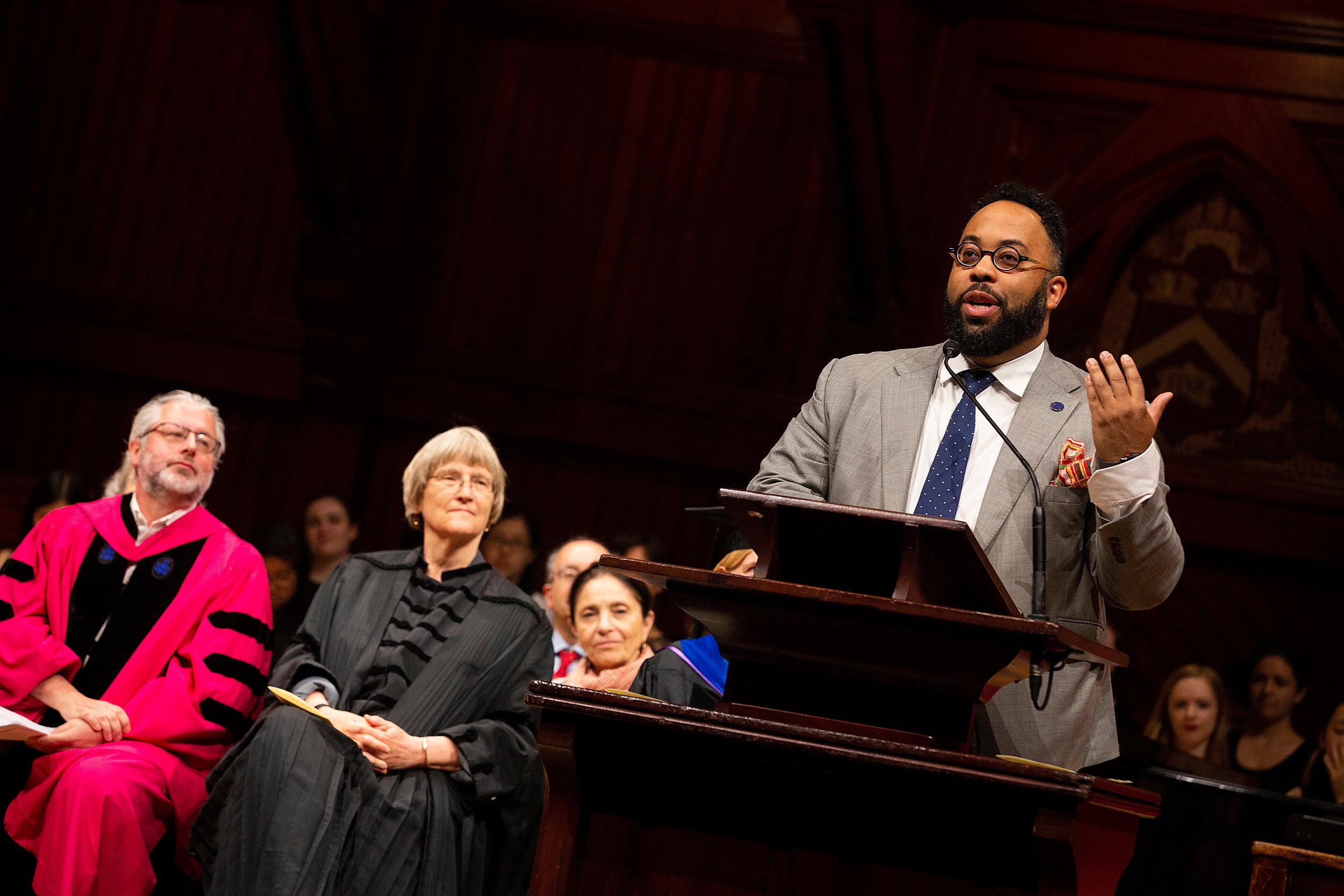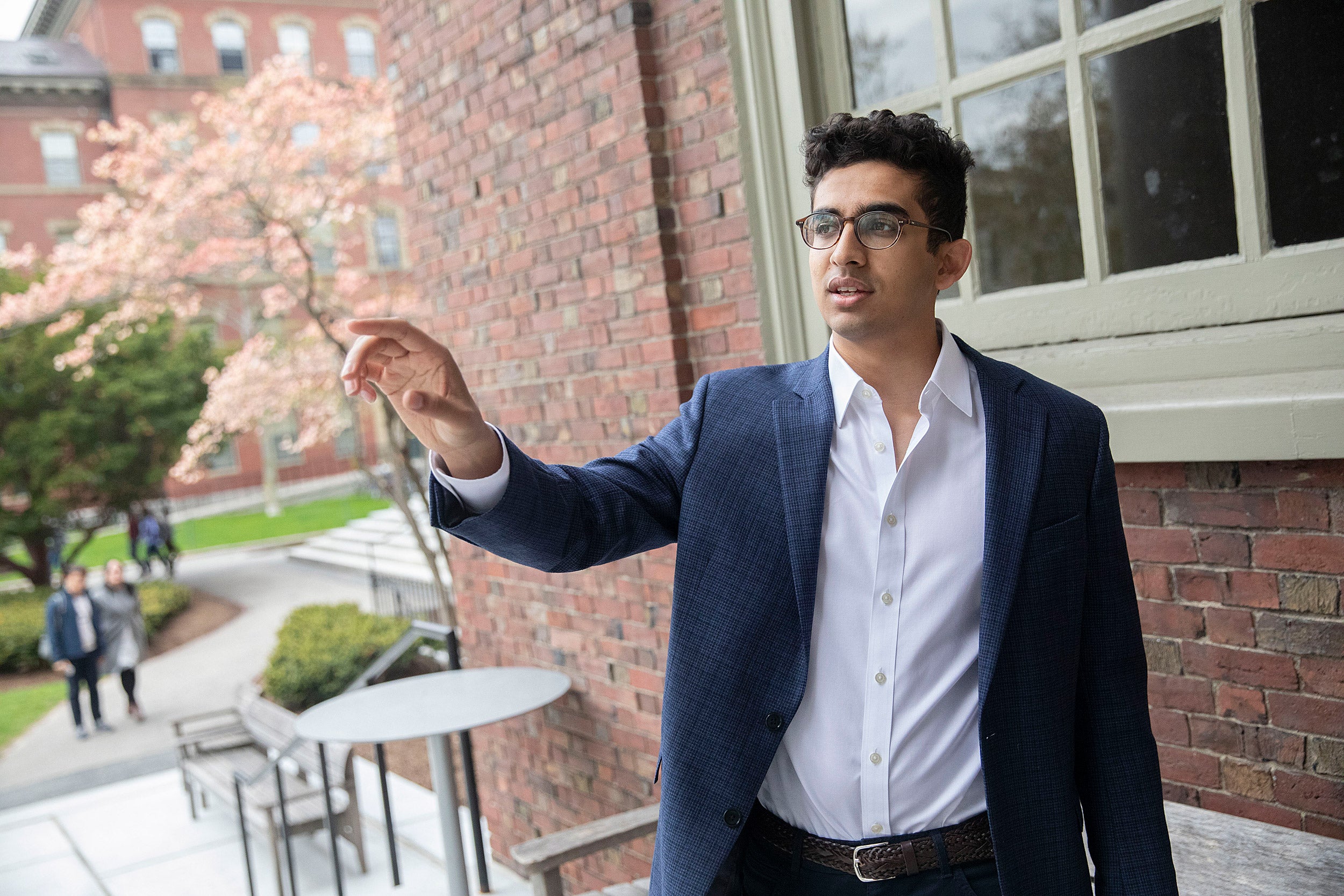Phi Beta Kappa ceremony honors 168 students
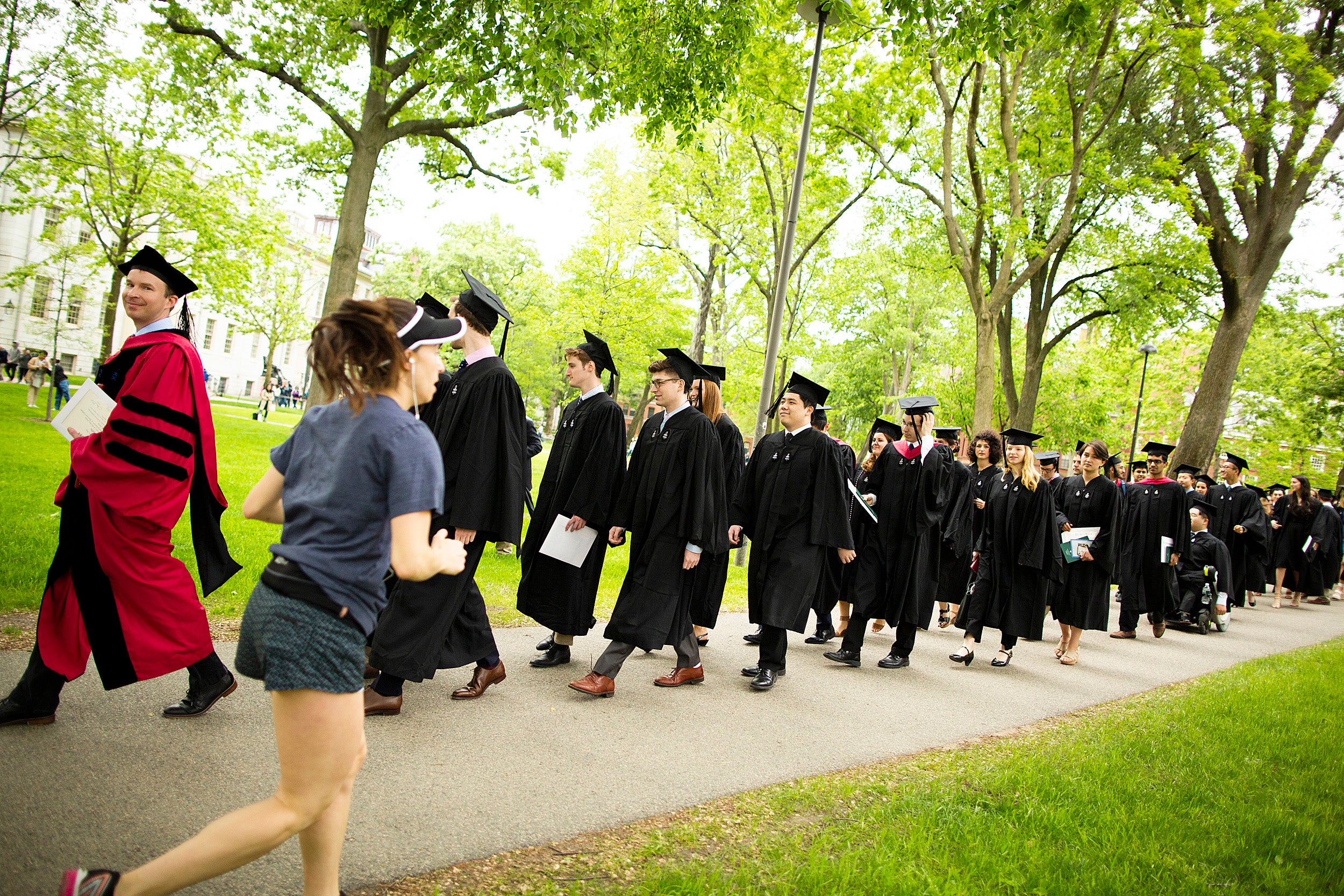
Logan McCarthy (left) leads the seniors to Sanders Theatre for the Class of 2019’s Phi Beta Kappa Literary Exercises during Commencement week.
Photos by Stephanie Mitchell/Harvard Staff Photographer
‘Duties of imagination’ are as important as acquiring and sharing knowledge, says orator Eric S. Lander
Giving their black caps and gowns a trial run, the graduating seniors inducted into Phi Beta Kappa (PBK) were honored for their exceptional academic achievements Tuesday morning during the 229th Literary Exercises at Sanders Theatre before family, friends, Harvard College Dean Rakesh Khurana, and President Larry Bacow.
One hundred and sixty-eight students chosen by Harvard faculty and senior staffers who are also Phi Beta Kappa members were inducted into Alpha Iota of Massachusetts at Harvard College, the School’s PBK chapter. In addition to a stellar grade point average and letters of recommendation, students are chosen for the breadth, originality, and rigor of their undergraduate course of study. A maximum of 10 percent of any graduating class can be selected each year.
Poet Dan Chiasson, Ph.D. ’01, poetry critic for The New Yorker for nearly two decades and a contributing critic at The New York Review of Books, as well as a poetry teacher at Wellesley College, read “The Math Campers,” a poem he wrote for the event.
The nine-stanza poem begins with the “bleak” outlook the planet now faces, but yields to a story inspired by Chiasson’s native Vermont, where brilliant students at math camp manage to devise an equation to stop time so summer never ends:
Now, in the interval between
Dodge ball and snack, the Math Campers
Back-of-the-envelope equations
They solve to make the summer longer.
They’ve measured out the summer
With the math they’ve done so far;
If they want a longer summer,
Oh, they’ll have to practice harder —
For every correct answer, one more hour;
A furlough from the changing leaves.
The daisies cheer from the bleachers,
And bumblebees gossip about love.
MIT Professor Eric S. Lander, the president and founding director of the Broad Institute of MIT and Harvard — and yes, once a math camper — gave the traditional Phi Beta Kappa oration.
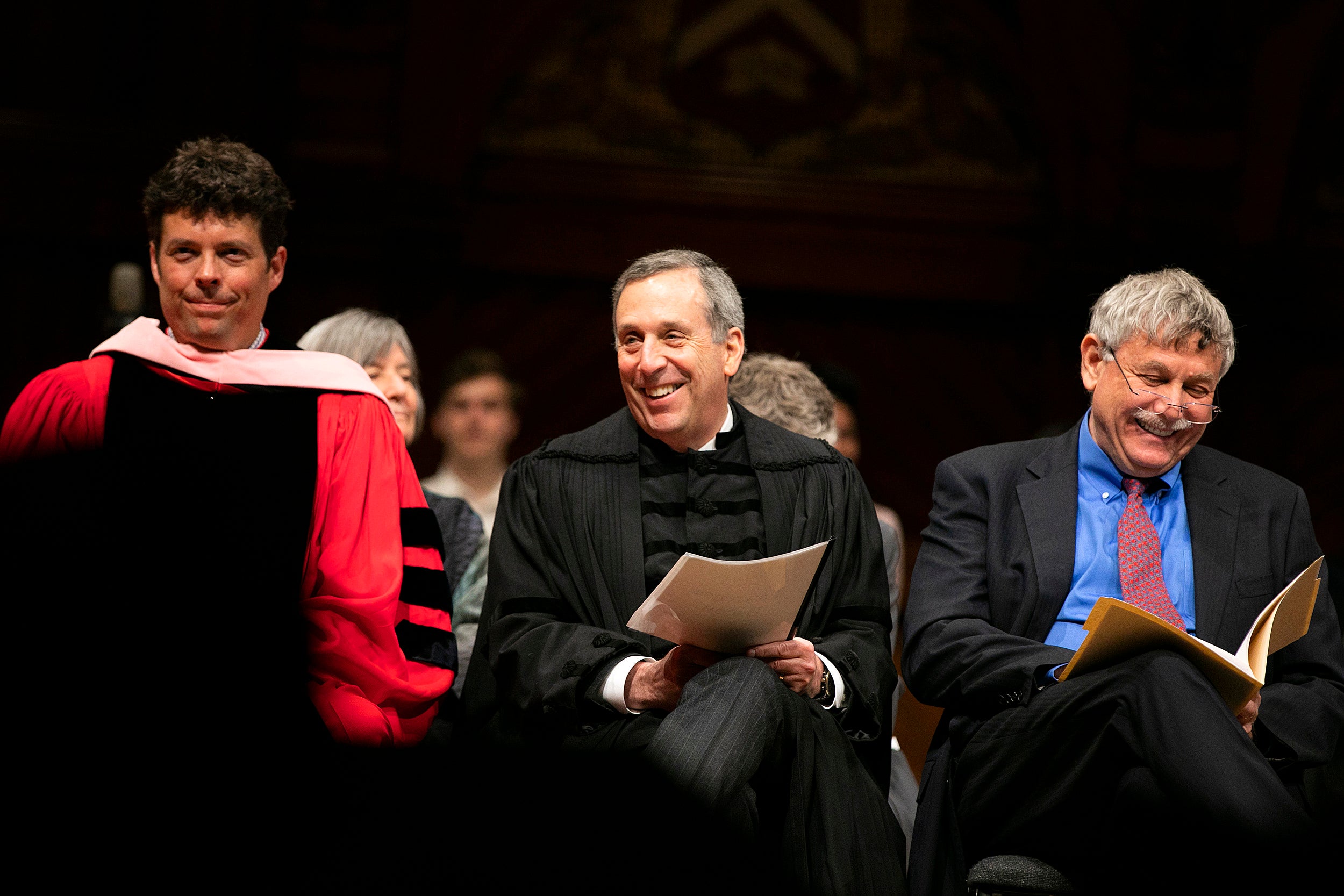
A mathematician and Rhodes Scholar, Lander said he was teaching economics at Harvard Business School when he started taking cellular biology classes at the College in his spare time. He would go on to produce pioneering work in genomics, particularly on the Human Genome Project, which has led to vital new discoveries for uncovering the genetic bases of human diseases, including Alzheimer’s, diabetes, heart disease, and schizophrenia.
Lander welcomed students into the world of scholarship, but warned that in “the fine print you accepted” was the duty to continue acquiring and sharing knowledge, and continuing to uphold the “duties of imagination.”
“Whatever you do in your life, you have a duty not just to do, but to imagine,” he said. “Whatever you work on, you have a responsibility to ask yourself two questions about imagination: What could possibly go right and what could possibly go wrong?”
Referencing the long, complex road — on which even key players in the field sometimes doubted the necessity or viability of advances that were soon achieved — from the discovery of DNA’s double-helix structure in 1953 to CRISPR genome editing and the forthcoming human cell “atlas,” Landers said though the failures of execution often get the most attention, especially in the sciences, the failure to think big is often the greatest risk.
“We tend to dramatically underestimate both the progress we can make and the problems we can create,” he said. “As scholars, you have a special ability, and therefore, a special duty, to imagine where great things may go so that we can seize opportunities and avoid pitfalls.”
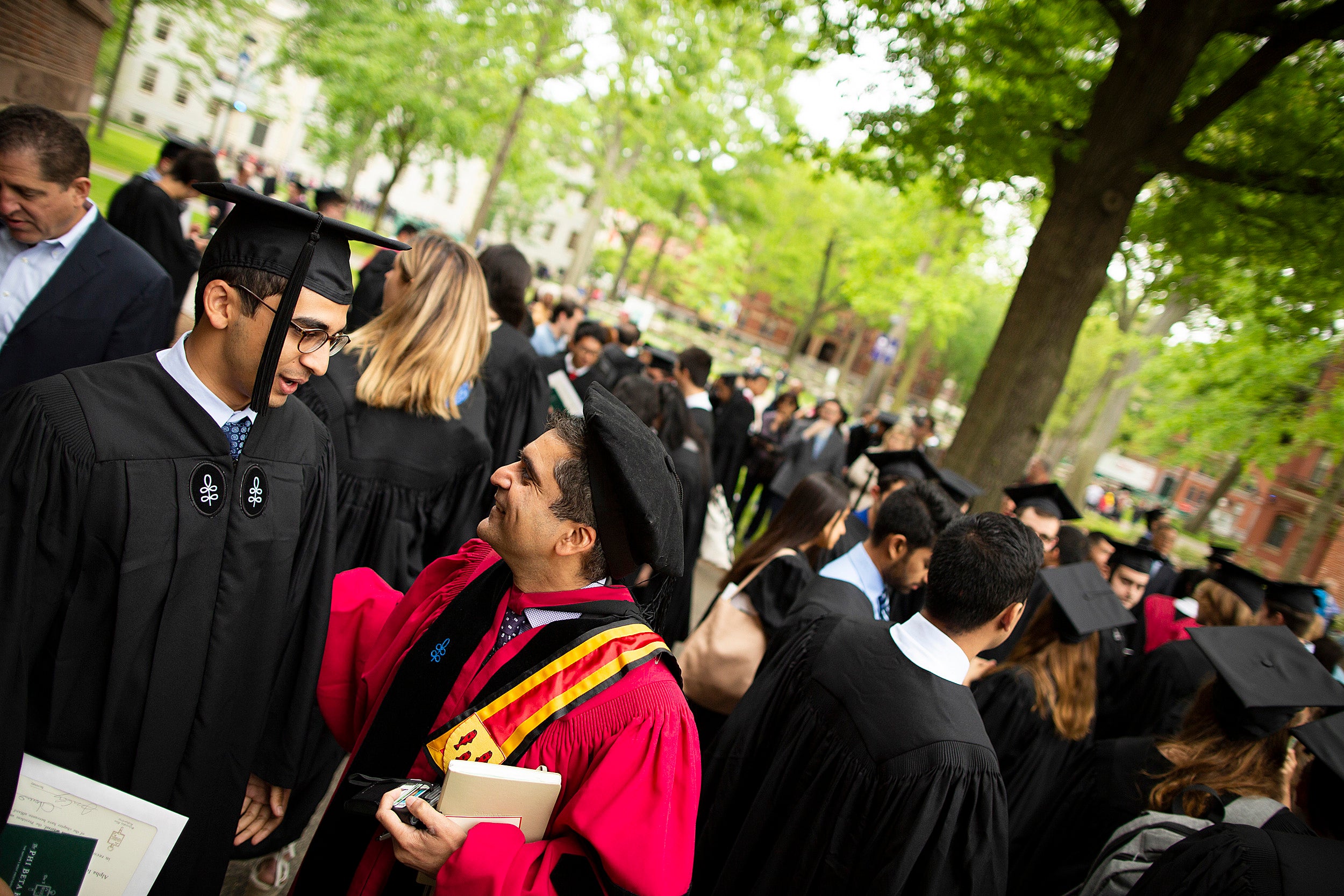
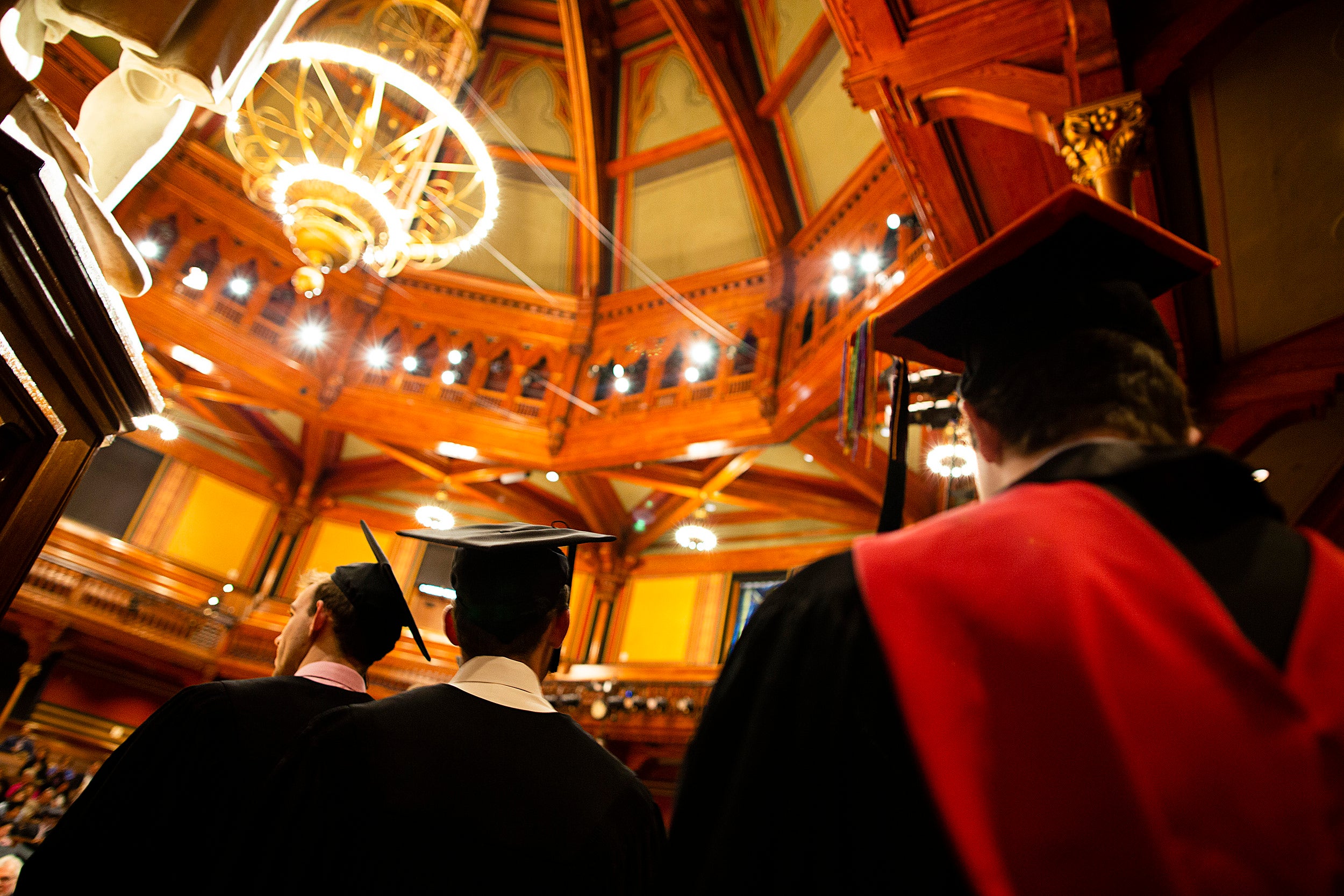
Kabir Gandhi ’19 (left) and Harvard College Dean Rakesh Khurana speak as seniors gather to commence to Memorial Hall.
Two faculty members and a doctoral candidate were chosen by students for teaching prizes in recognition of their inspirational — and, when necessary, constructively critical — efforts.
- Kathleen Coleman, James Loeb Professor of the Classics and senior research curator at the Harvard Art Museums, for her multimedia approach to teaching Latin literature and poetry, history of the early Roman Empire, and Roman mosaics in an accessible way;
- Elizabeth Hinton, John L. Loeb Associate Professor of the Social Sciences in the Department of History and the Department of African and African American Studies, who studies poverty and racial inequality in the 20th century, for her honest treatment of social change; and
- Abigail Modaff ’12, a teaching fellow working on her Ph.D. in 19th-century American cultural and intellectual history. She gave one student his first C-plus on a paper; the student said he was grateful for what he learned as a result.
Although they didn’t make the cut the first time, 50 years later, seven graduates from the Harvard and Radcliffe College Class of 1969 received honorary membership in Alpha Iota. They included several distinguished scholars in landscape architecture, law, and political science; a Pulitzer Prize-winning public radio host; an art museum founder; a pioneer clinical research in quality of life for breast cancer patients; and a Nobel Laureate in chemistry.



